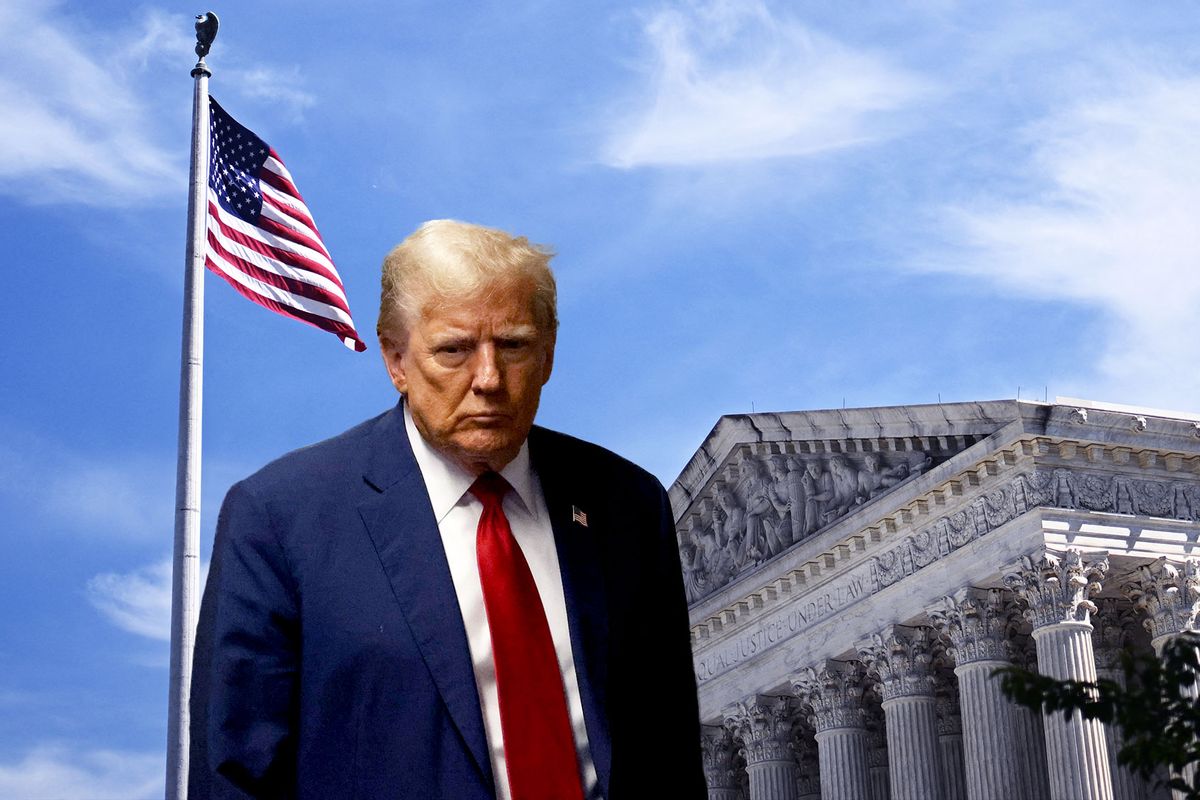The headline from Thursday's oral arguments before the Supreme Court is that Donald Trump's attorney — and thus, presumably, Trump himself — believe that a U.S. president be able to kill their rivals without fear of prosecution.
But while it was startling to hear a case for absolute tyranny from the Republican candidate's legal team, experts said the court is unlikely to agree that such assassinations would be "official acts" not subject to review, even as its right-wing majority appears willing to hand Trump a victory by delaying his federal trials until after the 2024 election.
The arguments Thursday related to special counsel Jack Smith's case concerning Trump's efforts to overturn the 2020 election, including the Jan. 6 attack on the U.S. Capitol and the plot to block the counting of electoral votes. A federal appeals court ruled in February that Trump is not immune from prosecution, prompting the Supreme Court to take up the case.
Rick Hasen, a law professor at UCLA and head of the school's Safeguarding Democracy Project, said the nation's highest court probably won't give Trump all he wants, but that it would still likely shield him from legal consequences until at least this fall, if not after the November election.
The Supreme Court, Hasen wrote on social media, "is unlikely to embrace either Donald Trump's extreme position — that would seem to give immunity for a president who ordered an assassination of a rival or staged a coup." It's also unlikely to completely side with the Department of Justice, either, which argues that even unquestioned "official acts" could be subject to legal review, he wrote.
What Hasen foresees is the court releasing a set of opinions, all of which will take time to draft, and ordering lower courts to reconsider the legal questions raised therein. "The bottom line is that Trump is likely to get what he wants — a further delay of this election subversion case, maybe pushing it to after the election," he wrote.
We need your help to stay independent
During the oral arguments, it was apparent that Trump had at least two votes in his corner: those of Justices Clarence Thomas and Samuel Alito, with the latter suggesting that presidents would refuse to leave office if they knew they could be criminally prosecuted. Other conservative justices, such as Amy Coney Barrett, who Trump nominated in 2020, were more ambiguous in their questioning, appearing uncomfortable with Trump lawyer John Sauer's arguments for unqualified immunity.
Sauer did not impress some of Trump's defenders in the legal world, either. Jonathan Turley, a law professor at George Washington University who previously argued against Democrats' efforts to impeach Trump, expressed shock when Sauer declined to respond to additional questions raised by Barrett and other justices.
"Wow, Trump counsel just waived rebuttal?" he wrote on social media. "I am not sure why counsel would not want to get added time to answer these questions before the justices."
If the court's right-wing majority was looking for sound legal cover from Trump's legal team, in other words, they did not appear to get it. CNN legal analyst Paula Reid said Thursday's hearing indicated, to her, a court prepared to reject claims of "absolute immunity" while still setting back the case against Trump.
Want a daily wrap-up of all the news and commentary Salon has to offer? Subscribe to our morning newsletter, Crash Course.
"It's pretty clear from what we heard that the majority of justices are not willing to just toss out the special counsel's case," Reid said. But Chief Justice John Roberts "clearly believes that the lower courts did not do enough to suss out exactly what is an official act versus a private act. So what they're setting up here is likely the justices are going to come up with some sort of test, and then send it back down to the lower courts for more litigation."
Wendy Weiser, a legal expert with the Brennan Center for Justice, argued that such a move would be a betrayal of the justices' responsibilities to the American public. She also noted that Trump's actions, as detailed in the election interference case, were not carried out in his official capacity as president but as a candidate who had just lost. That, she said, argues for a speedy decision, even if most observers believe that's unlikely.
"Regardless of what you think of the outer bounds of presidential immunity, there is no immunity for corrupt attempts to overturn the result of a presidential election," she wrote on social media. The Supreme Court "must act quickly," Weiss said, and "should not be complicit in the delay tactic to avoid accountability for [Jan. 6]."



Shares